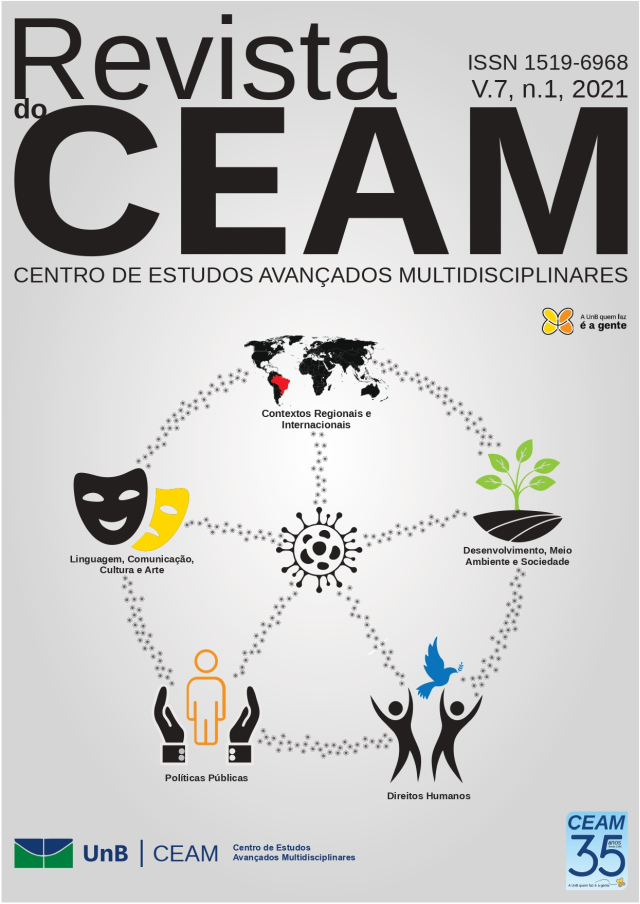Law practice and artificial intelligence
scientific dialogue between the legal and the technological
DOI:
https://doi.org/10.5281/zenodo.5944024Keywords:
Advocacy, Artificial intelligence, Implications, Law, TechnologyAbstract
In the last decades, the implementation of the use of the most improved technologies has become a practice of extreme importance for the optimization of the activities carried out in the field of Law, although some professionals have not yet understood the magnitude of the referred insertion in the legal framework and, some, still show resistance to enjoy them. The article in question seeks to highlight the inferences of both a positive and negative nature that artificial intelligence has been fostering in relation to the labor law aspect, in addition to appreciating how such technology will make the legal scenario even more sensitive by explaining its chains and uncertainties. It is known that many lawyers already make use of AI (Artificial Intelligence) as a facilitator of their work, however, some are still reluctant to assimilate and adapt to the new reality. This is a bibliographical review article, in which a search was made in the SciELO, CAPES and RT online database of articles published in the last 10 years.
Downloads
References
DAMY, Antonio; MIRANDA, Luiz; REIS, Henrique. A inteligência artificial - IA: À disposição dos operadores do direito. Centro Universitário Braz cubas, 2019.
JUSTIÇA & CIDADANIA. A Inteligência Artificial e o Direito: V Encontro de Magistrados Brasil-EUA discute os impactos e os desafios para o uso das novas tecnologias pelos tribunais. Disponível em: <https://www.editorajc.com.br/a-inteligencia-artificial-e-o-direito-v-encontro-demagistrados-brasil-eua-discute-os-impactos-e-os-desafios-para-o-uso-das-novastecnologias-pelos-tribunais/>. Acesso em: 17 nov. 2021.
LIMA, Silvio. O papel do advogado na formação da decisão judicial na era dos precedentes: desafios da hermenêutica e da argumentação jurídica. Unicjristus, 2019.Disponível em: https://repositorio.unichristus.edu.br/jspui/handle/123456789/799.Acesso em 24 de nov. 2021.
LOPES, Enrico. Quando um carro autônomo atropela alguém, quem responde? El Pais, 2019. Disponível em: https://brasil.elpais.com/brasil/2018/04/16/tecnologia/1523911354_957278.html. Acesso em 28 de nov. 2021.
NUNES, Dierle. MARQUES, Ana Luiza. Inteligência Artificial e o Direito Processual: Vieses Algorítmicos e os Riscos de Atribuição de Função Decisória às Máquinas. Revista de Processo, 2018.
NUNES, Dierle. RUBINGER, Paula Caetano. MARQUES, Ana Luiza. Os perigos do uso da inteligência artificial na advocacia. CONJUR. 2018. Disponível em: https://www.conjur.com.br /2018-jul-09/ opiniao-perigos-uso-inteligencia-artificial-advocacia#_ftn11. Acesso em 24 de nov. 2021.
PIMENTEL, Ângela; OLIVEIRA, Jaqueline; SILVA, Zaira. A inteligência artificial e a profissão jurídica. FSG Centro Universitário.
PLANALTO, Gov. CONSTITUIÇÃO DA REPÚBLICA FEDERATIVA DO BRASIL. Brasília, 1988. Disponível em: http://www.planalto.gov.br/ccivil_03/constituicao/constituicao.htm. Acesso em 15 nov. 2021.
RICH, E.; KNIGHT K. (1994). Inteligência Artificial. São Paulo: Makron Books.
RIFKIN, Jeremy. In The Third Industrial Revolution: A radical new sharing economy. S.i: Vice, 2018. Documentário. Disponível em: <https://www.youtube.com/watch?v=QX3M8Ka9vUA>. Acesso em 10 de nov. 2021.
RISSE, Matthias. Direitos Humanos e Inteligência Artificial: Uma Agenda Urgentemente Necessária. Revista Publicum. Rio de Janeiro, v.4, n.1, 2018, p. 17-33.
RUSSELL, Stuart; NORVIG, Peter. Inteligência artificial. Tradução Regina Célia Simille.3. ed. Rio de Janeiro: Elsevier, 2013. p.1188, 1189 e 1194.
SCHWAB, Klaus. A quarta revolução industrial. Tradução de Daniel Moreira Miranda. São Paulo: Edipro, 2016.
TSUI, E.; GARNER, B.; STAAB, S. (2000). The role of Artificial Intelligence in Knowledge Management. Editorial Note. Knowledge-based systems. [SI]: v. 13, s. 5, p. 235-239. Disponível em: <http://dx.doi.org/10.1016/S0950-7051(00)00093-9>. Acesso em: 17 nov. 2021.
Downloads
Published
How to Cite
Issue
Section
License
Copyright (c) 2021 Marcos Nunes Sampaio Júnior, Adriana Tedgue Ribeiro, Catarina Espinheira

This work is licensed under a Creative Commons Attribution 4.0 International License.
Autores mantém os direitos autorais e concedem à Revista do CEAM o direito de primeira publicação, com o trabalho simultaneamente licenciado sob uma Licença Creative Commons - Atribuição 4.0 Internacional, permitindo o compartilhamento do trabalho com reconhecimento da autoria do trabalho e publicação inicial nesta revista.









